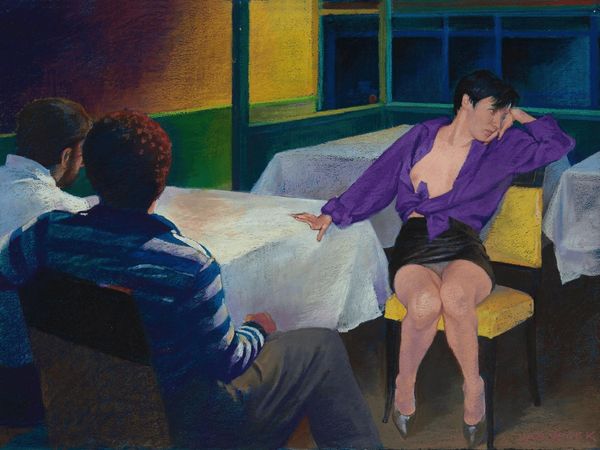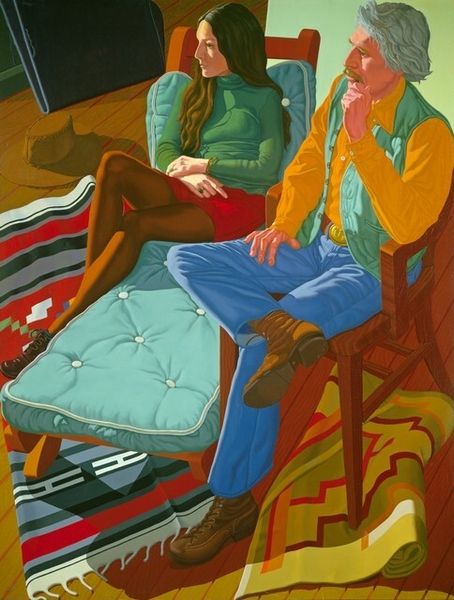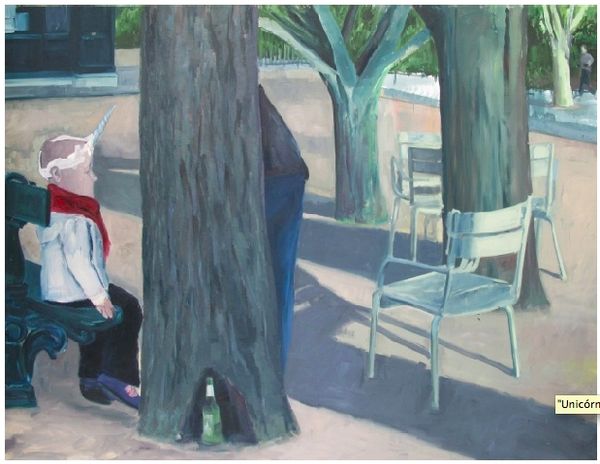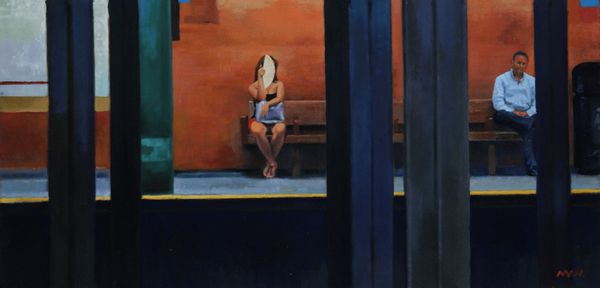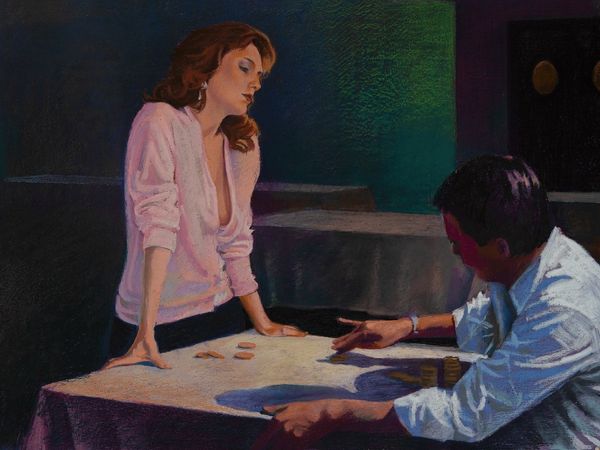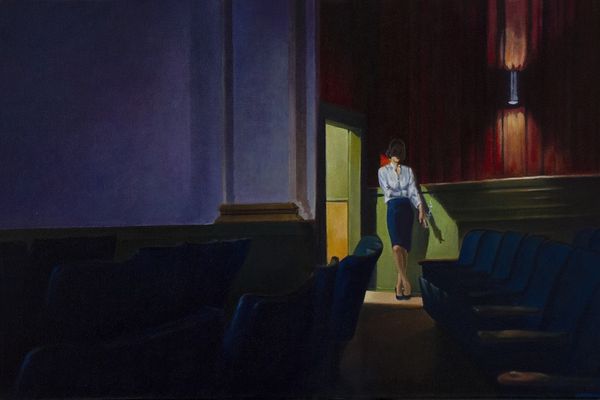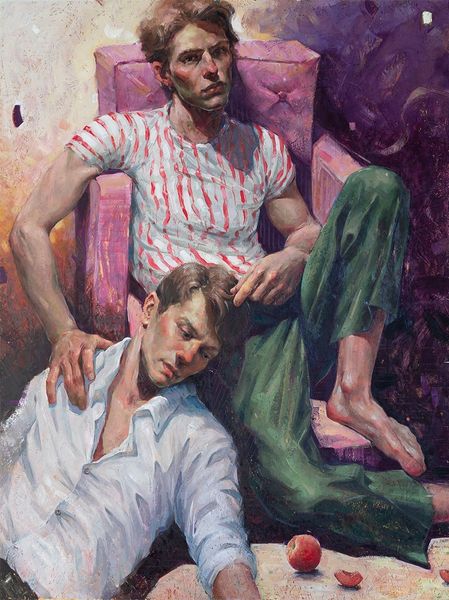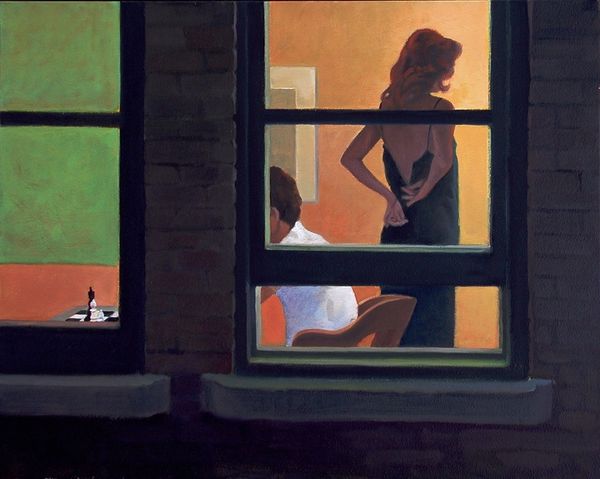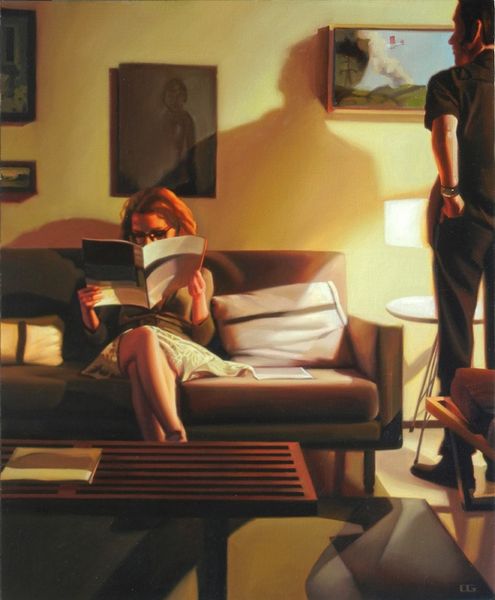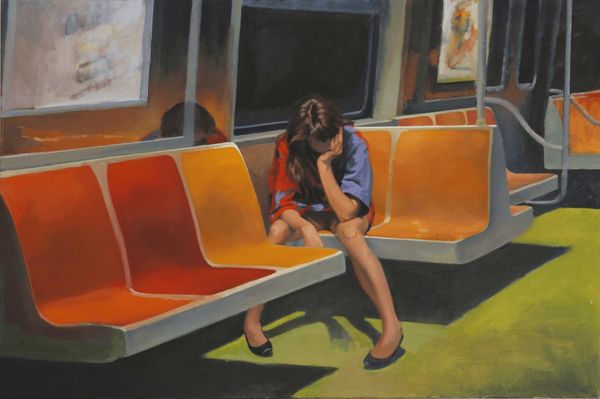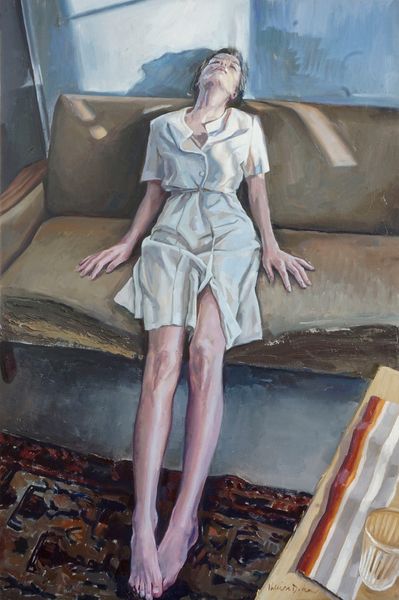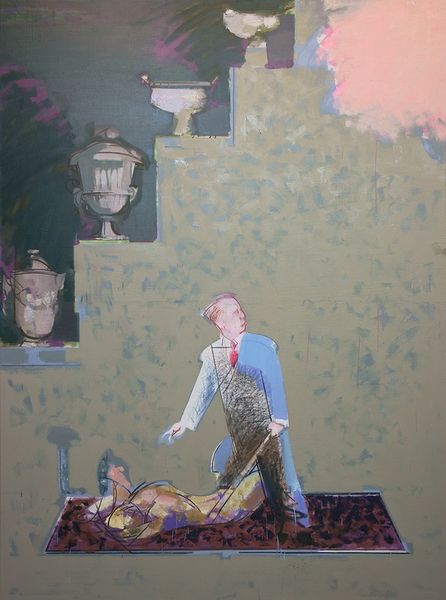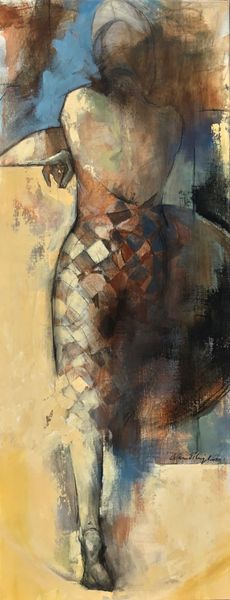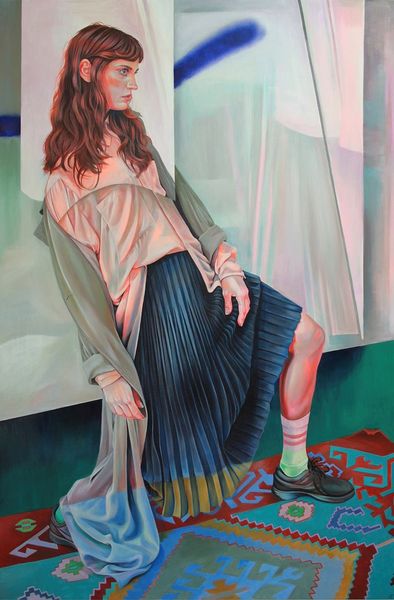
painting, oil-paint
#
portrait
#
painting
#
oil-paint
#
oil painting
#
genre-painting
#
modernism
Copyright: Modern Artists: Artvee
Curator: Welcome. Here we have Nigel Van Wieck’s oil painting, "Dead End". Editor: Immediately, I feel a hush fall over me. It's night, late, the light's drained. The tension is palpable—it vibrates, right? The cool blues versus the man's golden-ochre shirt just amps everything up. Curator: Yes, the juxtaposition is key. Notice how the artist divides the space, the painting is structured almost like a stage set, isn't it? With strong vertical lines. Editor: Oh, totally stagey. I picture a smoky jazz club after closing, everyone exhausted. What's their story? I wonder. Maybe a bit melodramatic, but definitely moving. She’s so drooped over; the man in gray and gold feels like an immovable obelisk, watching, waiting. Are they married? Has something awful just happened? Curator: The narrative is intentionally ambiguous. Observe the masterful composition—the dramatic chiaroscuro effect, a legacy of the Baroque masters—highlights the emotional distance, enhancing a sense of unresolved tension. Semiotically, his averted gaze is paramount; she doesn't meet the viewer's or his implied stare, and the dark palette reinforces an existential angst, if you will. Editor: That analysis takes a lot of life from them. See that pillow they're almost standing on? Or sinking in. It reads more "domestic drama" than "existential dread", though I grant that's *part* of it. Like… Hopper does therapy. Also—Van Wieck really gets bodies, the droop of her shoulders! You can almost feel her heartache. Curator: Absolutely. Van Wieck's emphasis on realistic figuration creates a compelling visual field. The slightly discordant color scheme also serves as an objective correlative for emotional unrest. And let's also note the Modernist simplicity of the style; everything is stripped back to fundamentals. Editor: See, I love the 'wrong' notes that ring honest. The man isn't soft and supportive but blocky; it clashes in the perfect way, you know? It becomes emotionally *real*. The question becomes, are they really at a dead end? Or is there light for them further up ahead. Curator: The work serves as an opportunity for prolonged reflection. I'd venture it asks how the subjects arrived at this impasse. Editor: I agree, finally something we meet upon, with all that weighty pause hovering—like the promise of more things needing to be told, of words still hanging. It almost makes you wish we knew more, while equally fearing doing just that.
Comments
No comments
Be the first to comment and join the conversation on the ultimate creative platform.
